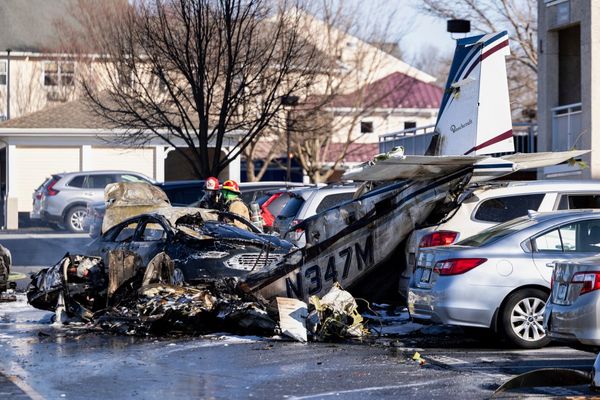Almost three years into the COVID-19 pandemic, a team of international experts says the world has still not dealt what it says is the "most likely" cause of the virus: animal-to-human transmission.
The task force was created last year to assess available evidence on what drove the origins and early spread of COVID-19 and provide "evidence-based recommendations" to reduce the impact and improve responses to such outbreaks.
Twelve members of the task force formerly convened in 2020 as a task force within the Lancet COVID-19 Commission, but it later dissolved over potential conflicts of interest.
In 2021, the group added two new members and reformed as the Independent Task Force. Its aim is to provide "evidence-based recommendations to reduce the impact of and improve responses to outbreaks".
In the new report, released today, it found the world had "largely failed" to meet the challenge to be better prepared to prevent or respond adequately enough to the next pandemic.
The report says the world still doesn't have strategies for preventing zoonotic transmission — animal-to-human virus spread — and, according to the experts, this will only get worse with climate change and urban sprawl.
One of the Australian-based members of group, the Doherty Institute's Danielle Anderson, said it looked at "all the evidence" and determined that the origins of COVID-19 were "most likely zoonotic".
Dr Anderson has worked and trained all over the world including at the Wuhan Institute of Virology.
The group's findings come on the back of two studies released earlier this year that found that the COVID-19 pandemic likely originated in a market where live animals were sold in Wuhan, China.
However, in June, The World Health Organization said its latest investigation into the origins of COVID-19 was inconclusive, largely because data from China was missing.
Dr Anderson said any circumstance where there was increased interaction between humans and animals — as a result of climate change and urban development — then there was a chance for a potential spillover of viruses.
"[That is] whether they're known to us, or new, previously unknown viruses," Dr Anderson said.
According to Jane Halton, from the Coalition for Epidemic Preparedness Innovations — who is not part of the task force — sharpening the focus on the interaction between animals and humans was a "crucial lesson" from the pandemic.
"What we have been experiencing the last three years [is] a consequence of a virus making the transition from an animal to a human, one that we had no capacity to respond to," she said.
The report, which makes five major recommendations, calls for a "One Health" strategy to prevent future pandemics, involving more collaboration across jurisdictions and different areas of health.
"This means looking at places where viruses could possibly emerge," Dr Anderson said.
"Working with people in those different countries and looking at, if there's cases of illness in either humans or in animals, and being prepared to catch things very early on, essentially as soon as they happen."
Targeting disease 'hot spots'
The task force's main recommendation is to identify high-threat potential pathogens among people, wildlife and domestic animals and target those disease "hot spots".
This is known as "smart surveillance" and could involve monitoring and sampling places such as wet animal markets, similar to the one in Wuhan.
Dr Anderson said it also involved deeper surveillance, such as examining people who worked closely with animals, such as animal traders, carers or those who work in abattoirs.
"Perhaps their blood could be taken periodically and look at what antibodies they have in their body to know what they've been exposed to," Dr Anderson said.
"If people are sick, then [we'd] ask the questions of: 'Do you work with animals?' or 'Have you had contact with animals?'"
Dr Anderson said this involved more people actively doing groundwork and "paying closer attention to little things to try to pick up clusters early".
The report said scientists could develop risk assessments and early warning systems, as well as building critical data to help develop vaccines, or ways to diagnose new viruses.
But, according to Professor Edward Holmes from the University of Sydney, there's one catch: politics.
"You can do all the surveillance you want [but] it gets you nowhere unless you're prepared to share that data," said the virologist, who was also involved in cracking the genome sequence of COVID-19.
"It's absolutely obvious what the causes are but, unfortunately, there's not been in place the restrictions, the controls, to stop them happening.
"And you'd hope that COVID would be the wakeup call to the world to say: 'Hey, we've got to do something about this'. But, I'm not convinced, sadly, that that's going to happen," Professor Holmes said.
Tackling misinformation
The report also calls for measures to counter misinformation and disinformation about the prevention and control of emerging diseases.
Ms Halton said social media companies needed to be responsible and not allow misinformation to be perpetuated.
'My hope is that all [these] companies will be responsible and not allow misinformation to be perpetuated or will provide the kind of information people need, so they can form a judgement based on the facts," she said.
"No one is looking to stifle debate but we need all the parties to be responsible. We have seen some really pernicious purveyors of misinformation over the last few years, so social media needs to be part of the plan."
The report calls for organisations to support scientists under threat arising from disinformation and politically motivated attacks as well as designing and promoting programs to improve public understanding of science.
Editor's note (25/11/22): This story has been updated to clarify that the Independent Task Force on COVID formerly convened as the Lancet COVID-19 Commission. It also makes note of work previously undertaken by task force members at Chinese institutions.







